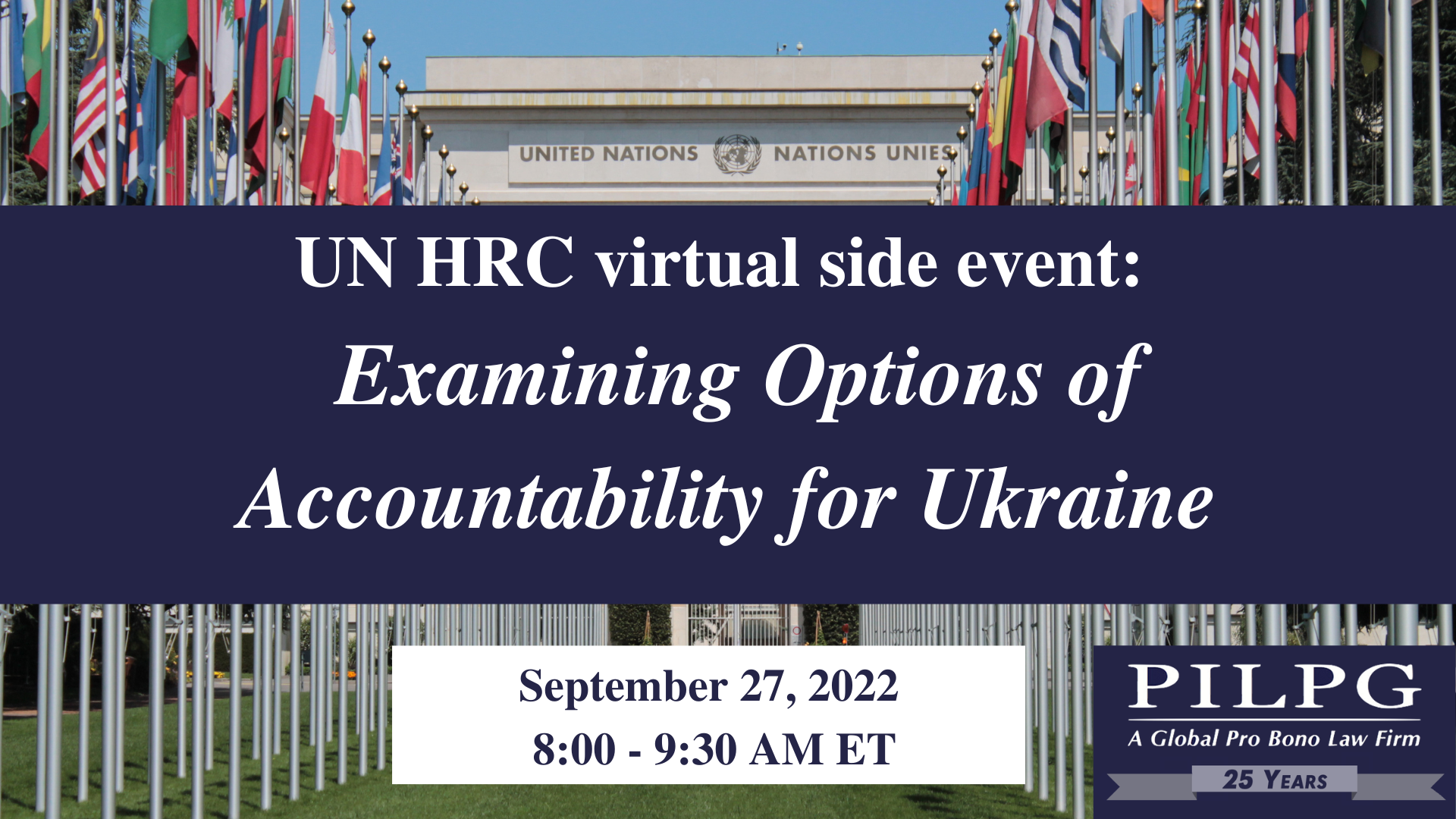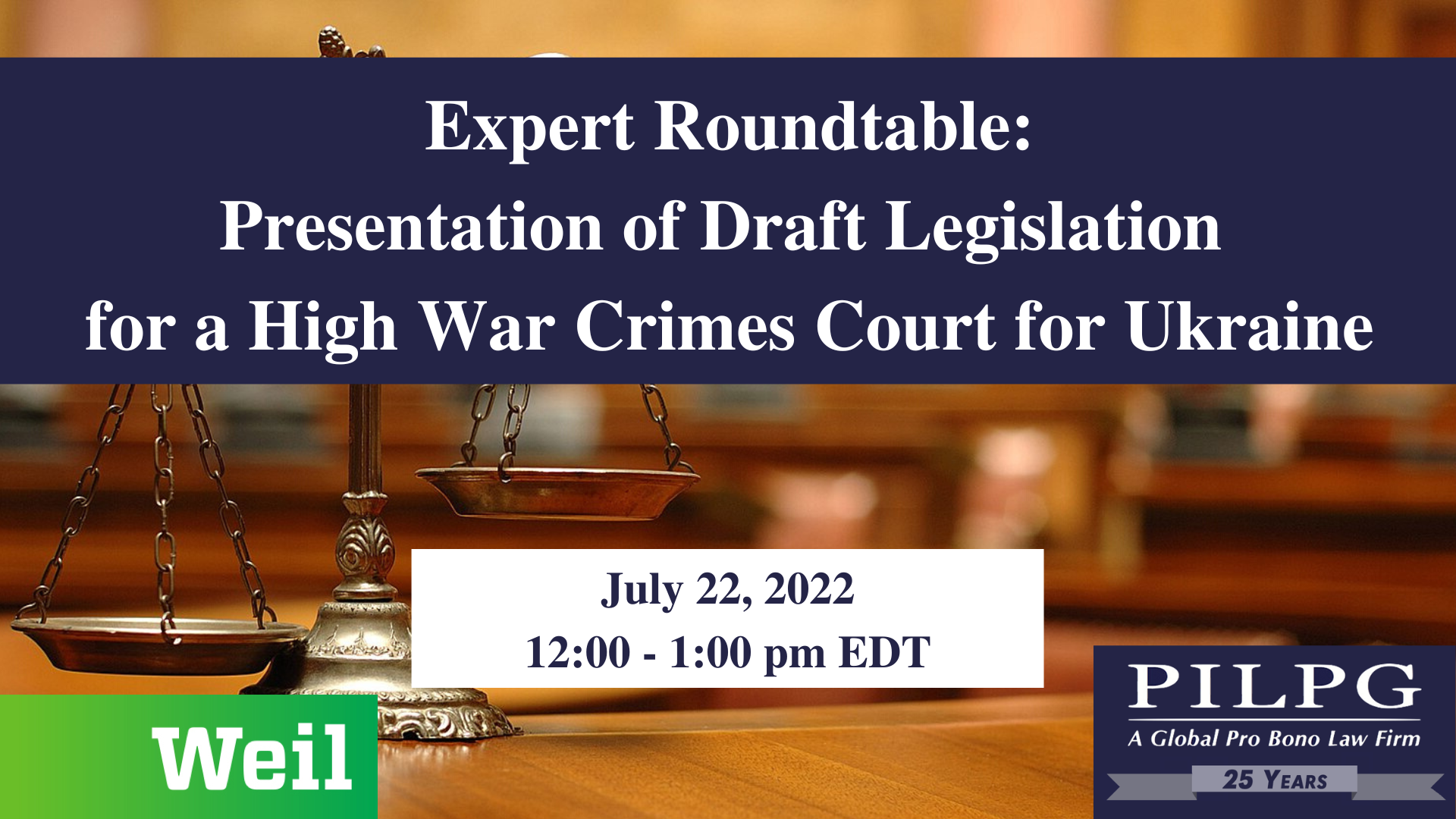In the context of Russia’s war in Ukraine, the negotiation of justice for crimes committed by Russia will involve procedural considerations, such as forms of justice and the scope of crimes to be prosecuted, as well as specific issues, including the return of children, prisoners of war, and minority rights in occupied territories. Justice will likely be a key component of any future negotiations between Ukraine and Russia and will require careful consideration of the options available and the legal frameworks underpinning each issue.
Click on the Peace Agreement Drafting Note of interest to find information on the strategies that could be adopted when addressing the topic of justice during peace negotiations between Ukraine and Russia.
PILPG Policy Planning, in collaboration with our law firm partners, have produced legal memoranda that offer in-depth legal analysis on the existing international law and several domestic legal frameworks, as well as relevant past precedents on pursuing accountability for atrocity crimes.
The following materials provide additional information on Accountability for atrocity crimes related to the War in Ukraine.












